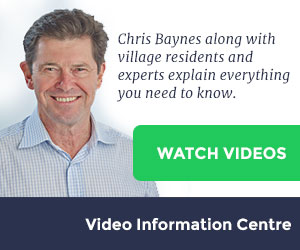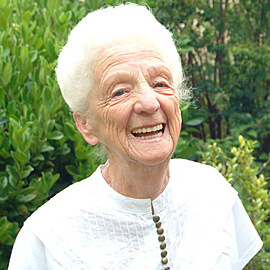International Research Has Led Me to What I Call: The 4Cs of Living Well
- Choose - to live well
- Contribute - do something
- Connect - socially and spiritually
- Control - keep it!
All the experts tell us we need to choose a healthy lifestyle; we know about the need to exercise, have a good diet, not smoke and do most things in moderation. But choosing to live well also includes our attitude to the problems we confront.
Harvard University's ground breaking study, ‘Ageing Well,' followed the lives of more than 800 people for over 60 years. One of their key findings was that the way we perceive our health is more important than our actual health. The study went even further to say that if we want to live long, happy and healthy lives, then we need to know how to make "lemonade out of lemons." It is how we react to life's difficulties or sour moments that matters. We might call it resilience, choosing to live well.
We know from research on happiness that giving back is a vital ingredient in the recipe; Aristotle called it "the virtuous life." When I first began speaking at forums on ageing well, I would often quote the old maxim, ‘It doesn't matter what you do, just do something. Make a contribution.'
After running some retirement focus groups in Sydney last year, I now think this advice needs rethinking. The groups told me that when the current generation retires they want to make a contribution, but only where they feel they can add value - fitting into narrow, low-skill volunteer roles is not for them. These highly-skilled people want their knowledge and experience to be put to good use. It makes me think that organisations that use volunteers in the future will need to do much better to match the roles they offer to the people they target.
OneGeneration is an organisation in America that has worked out how to help some of the very oldest people continue to contribute. They combine pre-school and aged care and do it in a wonderful way. I once took a couple of older, more cynical nurses to visit OneGeneration; it brought tears to their eyes to see people with severe dementia nursing babies to sleep. It was a moment of true spiritual connection.
Almost all the quality studies on how to age well conclude that we must remain connected socially and spiritually to the things we regard as important. This is one of the reasons we are seeing the sea-changers returning to their original locales. Some of the Gold Coast retirees are now returning to the city - they want to be near the friends, family, churches, community and activities they hold most dear.
Spiritual connection is hard to define but incredibly important. In her wonderful book, Crones Don't Whine, American writer Jean Bolin talks about spiritual moments as those when we are so engaged in the moment that we lose all track of time. The author Mihály Csíkszentmihályi calls this ‘flow.'
When visiting a nursing home recently, an incident happened that stays with me. We were approached by a resident, an older woman with dementia. She gently grabbed the nursing home manager's arm and said "I knew your mother" - she was looking for a moment of connection. The manager literally shook off the older woman and got us out of that wing as quickly as he could; he didn't miss a beat with his patter about how wonderful the home was. Very soon after, he told us that it was the daughters and daughters-in-law who made the decision about when it was time for mum or dad to move into the home.
I once asked my 85-year-old neighbour what was the worst part of growing older. He responded instead by asking me what I thought the worst part was. I said, "The loss of independence." He immediately responded by saying, "No, it is the loss of freedom. It is when my daughter tells me I cannot do things like drive anymore, when she starts limiting my life and making decisions for me."
Roland Naufal was CEO (2002-6) of Villa Maria Society, rated by BRW as one of Australia's top charities in 2005 and 2006. He now consults to industry and regularly writes for Villages Publishing.






